- Home
- Chris Ryan
Stand By, Stand By gs-1
Stand By, Stand By gs-1 Read online
Stand By, Stand By
( Geordie Sharp - 1 )
Chris Ryan
Never has there been a more graphic account of the SAS in action, never a thriller so authentically grounded in the twists and turns of undercover warfare.
Geordie Sharp, a sergeant in the SAS, is struggling to pick up the threads of his army career. Wounded in the Gulf War, he returns to Hereford to find his home life in tatters. As he trains with Northern Ireland Troop, a murder in his family fires him with personal hatred of the IRA. Posted to Belfast, he discovers that his adversary is Declan Farrell, a leading player in the Provisional IRA. Sharp sets out to stalk and kill his man.
Relentlessly exciting and completely unoutdownable, Chris Ryan's Stand By, Stand By is as exciting as the military thriller can be.
Chris Ryan
Stand By, Stand By
For my mother
ACKNOWLEDGEMENTS
I wish to give special thanks to someone who shall remain anonymous but without whose editorial help I would never have finished this. To all my family and friends for their patience and understanding. Also to Mark Booth, Liz Rowlinson, Tracey Jennings and Nicky Eaton at Century.
EPIGRAPH
The Castle
As the knights fight in the hall, people stand by the wall.
Jokers joke whilst people poke at one another.
Shrieking sounds down below where cellars glow.
The King sits on his throne when people groan.
The Lady who wears silver threads lives in dread of the spider and the dead.
by Sarah Ryan, aged 7, 1996
GLOSSARY
ASU — IRA Active Service Unit
Basha — Sleeping shelter
Bergen — Rucksack
BG — Bodyguard (noun or verb)
Blue-on-blue — Accidental strike on own forces
Box — General name for intelligence services
Casevac — Casualty evacuation
CAT — Counter-attack team
Comms — Communications
CTR — Close target reconnaissance
DET — Intelligence gathering organization
DAS — Colombian Police
DF — Direction finding
Dicker — IRA scout
Director — Officer commanding special forces, generally a brigadier
DOP — Drop-off point
DPMs — Disruptive pattern material camouflage garments
DZ — Drop zone
EMOE — Explosive method of entry
ERV — Emergency rendezvous
EMU — Encryption device
FMB — Forward mounting base
FOB — Forward operating base
GPS — Global positioning system (navigation aid)
Head-Shed — Headquarters
Incoming — Incoming fire
Int — Intelligence
IO — Intelligence officer
LO — Liaison officer
LUP — Lying-up point
LZ — Landing zone
Magellan — Brand name of GPS
OP — Observation post
PE — Plastic explosive
Phys — Physical exercise
PIRA — Provisional IRA
Player — Terrorist
PNGs — Passive night goggles
PUP — Pick-up point
QRF — Quick reaction force
RTU — Return to unit
Rupert — Officer
SAM — Surface-to-air missile
Satcom — Telephone using satellite transmission
SEAL — Sea, Air and Land — American special forces unit
Shreddies — Army-issue underpants
SOCO — Scene of Crimes Officer
SP — Special Projects
SSM — Squadron sergeant major
RUC — Royal Ulster Constabulary
TACBE — Emergency radio
TCG — Tactical Control Group
Tout — Informer
UCBT — Under-car booby trap
US — Unserviceable
VCP — Vehicle control point
319 — VHF radio
WEAPONS
AK 47 — Soviet-design 7.62mm short rifle
203 — Combination of 5.56mm automatic rifle (top barrel) and 40mm grenade launcher (below)
HK 53 — 5.56mm automatic rifle
Galil — Israeli-made 7.62mm automatic rifle
G3 — 7.62mm automatic rifle
Long — Any rifle
L2 — Hand grenade
MP 5 — 9mm sub-machine-gun
RPG7 — Soviet-made rocket launcher
SA80 — 5.56mm rifle
Short — Any pistol
Sig — Sigsauer 9mm pistol
ONE
That night the dream came again. As usual I was being swept forward, unable to control my speed. I felt as though I was on a roller-coaster at a fairground, accelerating bumpily through the cold, dark air. But why were no other passengers riding with me? Why was I alone in this freezing night?
The ride was very rough. OK, I thought, the track’s buckled, but I can handle it — and I clung tight to the side-rails to stop myself being flung out. Then something began to drag at my left arm, holding it back, as if that side of the carriage was being left behind. Let go, dickhead! I told myself, but my fingers wouldn’t unclamp from the rail. Pain ripped through me. I thought, I’m going down here. I’m going to get torn in half.
The cold was horrendous. The air pouring past me was so frozen it was searing my skin. When I opened my mouth to yell, it drove a fierce pain into the roots of my teeth, so that I had to clamp my lips shut. Then over the black horizon ahead came a gleam of light. I was hurtling towards that bright rim, the rim of the world. All too well I knew what I’d see beyond it. Up and on I went, faster than ever, my arm being torn in half at the elbow.
Then in a split second I was over the top and into the light, diving towards an operating theatre as big as an airport. A wall of heat rushed up to meet me, so that in an instant I was pouring sweat, like down in the sands of Abu Dhabi. Brilliant lamps blazed on to the table, and life-support equipment was ranged alongside: drips, oxygen cylinders, white dishes full of instruments. Attendants in green gowns and masks were waiting, ready — and in the centre stood a tall surgeon with a hypodermic syringe the length of an AK 47, the point of its gleaming needle levelled at my eye. I longed for a gun so I could drop him at a distance, but no: I was going in close. ‘BASTARDS!’ I roared as I hurtled down towards him. ‘BASTARDS! BASTARDS!’
I woke up. Kath stood in the doorway, the light from the landing shining on her straight fair hair. In the background Tim was crying.
‘Geordie,’ she said quietly. ‘Are you all right?’
‘Yeah, yeah.’ I tried to turn over, but I found I’d got the bedclothes wound around me so I was trussed like an oven-ready chicken.
Kath came across and put her hand on my forehead. ‘You’re soaking. Better change the sheets. I’ll get you a clean pair.’
‘I’ll be OK, thanks. What time is it?’
‘Just after three.’ She sat down on the edge of the bed, silhouetted against the light. With one hand she drew her dressing-gown tight around her neck, and with the other she smoothed out the top sheet. ‘What time did you get to bed?’
‘Not sure. Maybe half one.’
‘How much did you drink?’
‘Not a lot. Two or three more Scotches.’
She knew perfectly well that I’d been hitting the booze far worse than I admitted, and going to ridiculous lengths to cover up. She knew that alcohol was becoming a serious problem for me, and several times she’d pleaded with me to seek professional advice.
Now she asked, ‘W
hat happened? Was it the dream again?’
‘Yeah. Was I making a noise?’
‘I thought someone was killing you. You were yelling at the top of your voice. It woke Tim.’
‘I’m sorry.’
‘It’s all right. I meant to ask — did you hear any news about when Tony’s coming over to do selection?’
‘He’ll be here in June, I think. Why?’
‘Just wondered.’
I knew what she was thinking: that Tony had been my salvation in Iraq, and might again act as a stabilizing influence when he arrived in England. He might help me get the whole Gulf experience squared away. Possibly she was right — but how could anyone know?
‘Arm hurting?’ she asked.
‘No, it’s comfortable.’
‘Headache?’
‘A bit.’
‘Take some Paracetamol, then.’
‘OK.’
She punched a couple of tablets out of a pack on the bedside table and handed them to me, together with a glass of water. I propped myself on one elbow to get them down.
‘Thanks. I’ll be fine now.’
‘Sleep well, then.’
She ran a hand over my hair, got up, went back to the door and closed it softly. Soon the kid stopped crying, the landing light went out, and I heard the door of our bedroom click shut.
Our bedroom. I should have been sleeping there, in our big double bed. The fact that I was on my own summed everything up. The recurring nightmare was my excuse for sleeping alone; I’d said I’d move out to the spare room because I didn’t want to keep waking Kath with my bad dreams. But beneath the surface, something far deeper had gone wrong.
My sheets were clammy. Like most guys in the Regiment I sleep naked — so I got up, rubbed myself down with a towel, opened the window wider and let the cool night air flow in round my body, drying it off. I listened as the wind rustled through the oak tree at the back of the house. An owl hooted, close and loud. Lucky bird — that it should have so little to worry about. A mouse or two a night was all it needed to be happy, and it had no idea of war, no idea of captivity, no idea of death.
After a while I went back to bed, and lay staring upwards with the sheets pulled under my chin. I knew full well that my troubles stemmed from what had happened in the desert and in that shit-heap of a hospital in Iraq.
I thought of Tony; good, tough guy that he was. Tony, who had shared my captivity, and done so much to get me through it, with his indomitable spirit and unfailing sense of humour. His proper name was Antonio Lopez, but ever since he could remember he had been known by the easy abbreviation. As a SEAL (a member of the American Sea, Air and Land special forces unit), he had been through far worse ordeals than I had, especially when that operation had gone tits-up in Panama. He had come out of the Gulf very much in one piece, and now he was about to take the selection course, in the hope of joining the Regiment for a two-year tour. Was I so much inferior to him, that I couldn’t stand the strain?
I kept thinking back to what it had been like before, between me and Kath. If anyone had asked, I could have answered truthfully in one word: ‘Brilliant!’ We’d met four years earlier, and we’d been delighted to discover that our twenty-fifth birthdays were both coming up within a week of each other. Now, lying in the dark, I remembered the day we found the house. We’d seen a photo in an estate agent’s window, and arranged to borrow the key. The price was right on the limit of what we could afford, but thanks to the generosity of my in-laws we had enough cash for the deposit. The agent warned us that the place was way off the beaten track. ‘It’s another world out there,’ he said. ‘Not to worry,’ I told him, ‘that’s what we’re after.’
He handed us the keys and we drove out, only fifteen minutes from town. When we saw the house, we looked at each other and grinned. It was old, 150 years at least, and it stood in a perfect position at the end of a lane, in a hollow surrounded by fields. A spinney of oaks ran away up a little valley at the back, with a trickle of water coming down between the trees. Even in winter, with the branches bare, it looked a dream. What would it be like in high summer?
Keeper’s Cottage was its name, and that’s what it had been: the home of a gamekeeper. Before long we came to call it KC. Over the years the brickwork had mellowed to a soft red — typical Herefordshire — and the previous owners had worked hard to restore and improve the house, so that we were able to move straight in. Outside, the garden had gone to seed, but Kath, who had green fingers, got stuck into that as soon as spring came. Under her direction I did the heavy digging, but it was she who planned and planted everything. She was thrilled to find that several of the trees in the spinney were rowans, or mountain ash — her favourites — which put on a tremendous show of brightred berries in the autumn. The place and its associations reminded me of my childhood home in the north, where as a boy I was forever ferreting rabbits and walking the hedgerows.
In KC we were as happy as anybody could have been. It was the first time that either of us had lived in a house without a number — in our eyes a big plus, as it made us feel we had the edge over our friends living in towns. The house and rooms were exactly the right size for us, neither too big nor too small. The place was so private that in summer we could sunbathe stark naked on the lawn. Kath got a vegetable patch going, and grew some cracking beans, peas, potatoes and lettuces, and herbs galore. We ate so many fresh salads that our ears started turning green. In winter we were snug as squirrels, because I got permission from the neighbouring farmer to collect firewood from the spinney, and in the living room we kept a Norwegian log-burner on the go day and night. The stove had a back-boiler for boosting the hot water; if I opened up the draught, I could get the tank boiling.
The footpaths and woodland tracks were ideal for running, and I could do my phys — physical training — at home just as well as round the camp. Soon I had two circuits worked out — one of six miles, one of eight. Kath talked of getting a horse… if we could persuade the farmer to rent us a paddock, and after the baby had arrived.
Tim was born, on time, in the County Hospital in Hereford. I watched him come into the world, holding Kath’s hand and trying to share her pain. He weighed 8 lbs 2 oz, and once he was cleaned up we could see he was going to have hair even fairer and eyes even bluer than his mother’s. Kath’s parents were so chuffed with their first grandchild that they came straight over from Belfast to see him; they stayed in the cottage, and Meg helped with the baby for a few days, until Kath got her strength back. Den, a retired doctor, didn’t do much except offer medical tips — and I don’t think he did much at home either, except watch television.
So we carried on, happy with each other. In the summer of 1990 I went to Africa with the squadron, on team training. We were away two months, but I got back to find everything just the same, and Kath and I carried on where we’d left off. It was only when Saddam invaded Kuwait, and D Squadron was deployed to the Gulf, that things began to go belly-up.
Leaving was tough. Before we flew out from Brize Norton at the start of January ‘91, Kath and I had some emotional moments trying to plan a future for her and Tim, in case I didn’t come back. The house would be hers, of course, and she would be free to sell it if she wanted. But I told her it would be my wish that she should marry again, and that the kid should be educated as well as she could afford, at some fee-paying school if no good state school was available. Such thoughts brought with them many tears, but we did our best to look the future in the face.
Next day we were gone. Before the war started I was able to phone Kath from time to time, from the R & R centres established in the desert, and everything was OK. The satellite connections were perfect, and it was like talking to her in the room next door. But once we deployed across the border into Iraq at the end of January there was no chance of further communication, and it wasn’t until the ninth of April, when members of D Squadron were reunited in Cyprus on our way home, that I spoke to her again. And as it turned out, during those ten we
eks — in the desert, in hospital, in prison — I’d been through quite a bit.
On the line to Akrotiri, Kath sounded very much herself — worried about me, lively, loving, full of news about Tim. It was I who had changed.
Like everyone else I looked forward to getting home; for weeks I’d yearned to be back in England. Yet when I reached Hereford, there was something wrong. I didn’t go straight home. I didn’t want to — couldn’t face it. To my shame, I went out on the piss with a couple of the single lads who lived on the block. All they wanted was to have a few beers and go downtown to see if they could pick up a girl for the night. For me, things weren’t so simple.
By the time I reached the cottage I wasn’t making much sense. Kath looked terrific — I could see that in an objective sort of way — but she also looked shocked that I had arrived back in such a state. Tim had grown inches and was starting to talk. She’d taught him to say ‘Dad’, and he brought the word out on cue. I should have been bowled over. Instead I felt nothing. It was extraordinary, but I didn’t even feel randy. By then the other guys would have been randy as hell; during the flight they hadn’t been able to stop talking about how they were going to screw their bollocks off the moment the Herc touched the tarmac. I should have been the same, but I didn’t seem to fancy Kath any more. I couldn’t make love to her; I could hardly kiss her on the cheek, or even look her in the eye. As for telling her what had happened to me — I just explained a bit about my arm, and skirted round the rest.
She was hurt, of course. Although she played it down, she couldn’t conceal her worry and unhappiness. I think she hoped that time would heal the trouble between us, whatever it was, and after a while things would return to normal.
All along I knew that the fault lay with me, not her, and I tried to say so. But then began the nightmares and the headaches started. I started on the booze — something I’d never much bothered with before — and instead of mending, our relationship went further downhill, until we were making space round each other as we moved about the house, and hardly speaking.

 Global Strike
Global Strike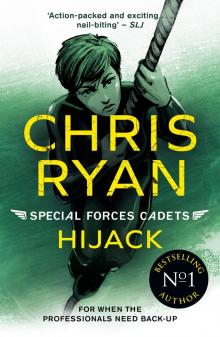 Hijack
Hijack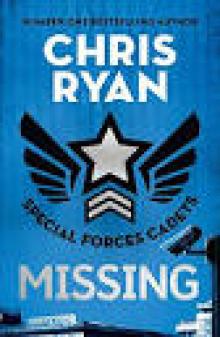 Special Forces Cadets 2
Special Forces Cadets 2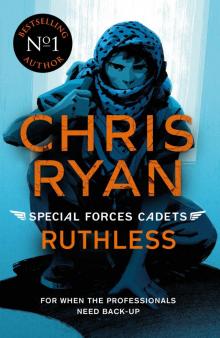 Ruthless
Ruthless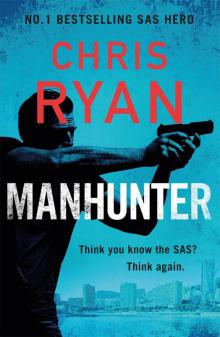 Manhunter
Manhunter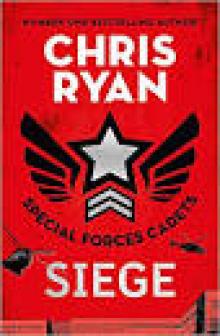 Special Forces Cadets 1
Special Forces Cadets 1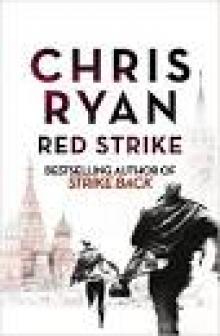 Red Strike
Red Strike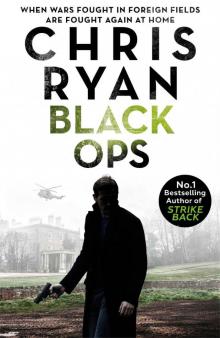 Black Ops
Black Ops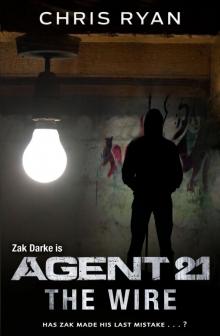 Agent 21: The Wire
Agent 21: The Wire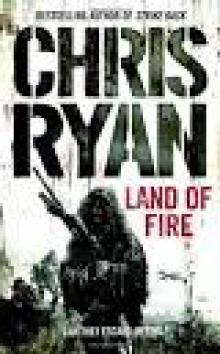 Land of Fire
Land of Fire Alpha Force: Fault Line
Alpha Force: Fault Line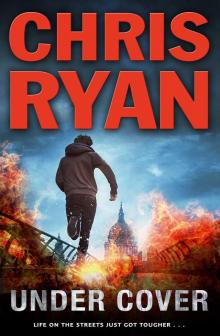 Under Cover (Agent 21)
Under Cover (Agent 21)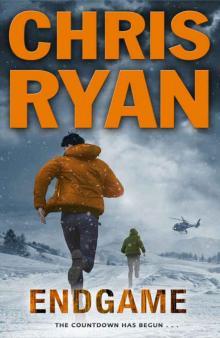 Endgame (Agent 21)
Endgame (Agent 21) Red Centre
Red Centre Blackout
Blackout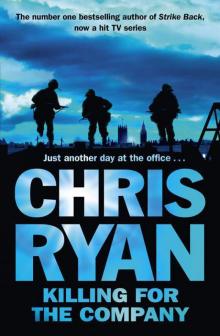 Killing for the Company
Killing for the Company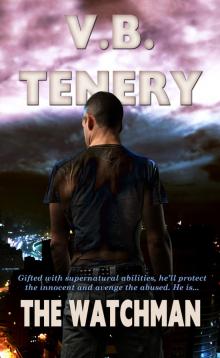 The Watchman
The Watchman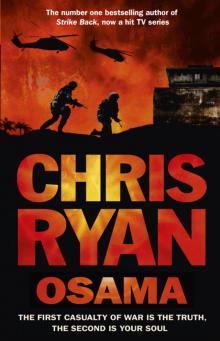 Osama
Osama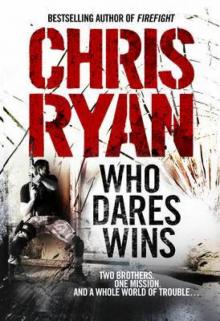 Who Dares Wins
Who Dares Wins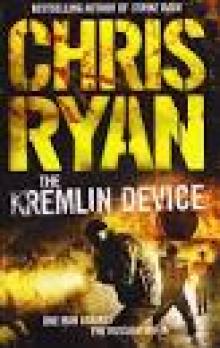 The Kremlin Device
The Kremlin Device Hunter Killer
Hunter Killer Alpha Force: Untouchable
Alpha Force: Untouchable Stand By Stand By
Stand By Stand By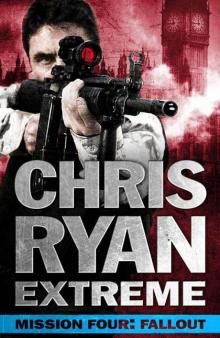 Chris Ryan Extreme: Hard Target: Mission Four: Fallout
Chris Ryan Extreme: Hard Target: Mission Four: Fallout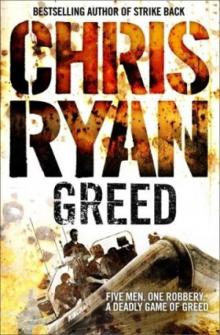 Greed mb-1
Greed mb-1 Alpha Force: Desert Pursuit
Alpha Force: Desert Pursuit Strike Back
Strike Back Greed
Greed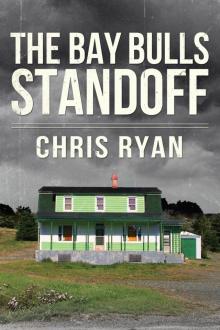 The Bay Bulls Standoff
The Bay Bulls Standoff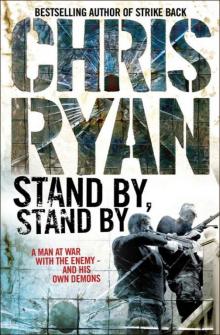 Stand By, Stand By gs-1
Stand By, Stand By gs-1 Outbreak
Outbreak Hunted
Hunted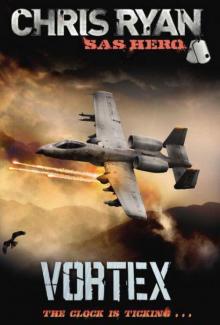 Vortex cr-4
Vortex cr-4 Rat-Catcher
Rat-Catcher Vortex
Vortex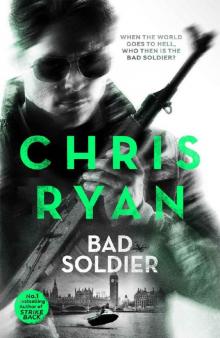 Bad Soldier
Bad Soldier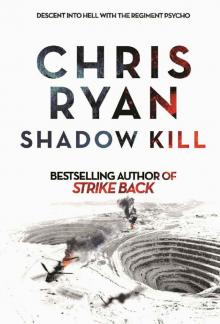 Shadow Kill: A Strikeback Novel
Shadow Kill: A Strikeback Novel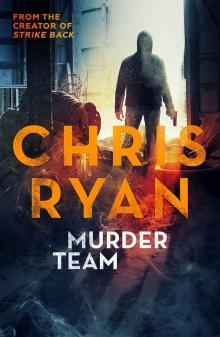 Murder Team (Kindle Single)
Murder Team (Kindle Single) One Good Turn
One Good Turn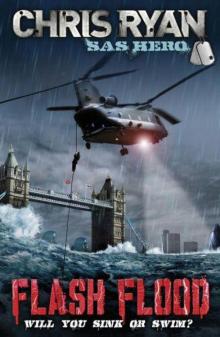 Flash Flood cr-1
Flash Flood cr-1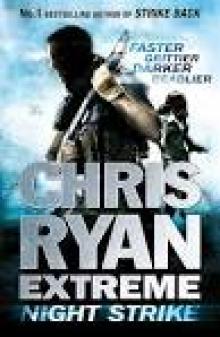 Night Strike
Night Strike Wildfire
Wildfire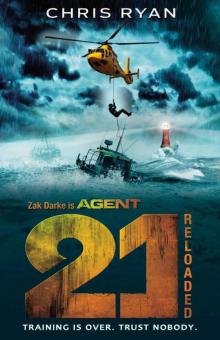 Agent 21: Reloaded: Book 2
Agent 21: Reloaded: Book 2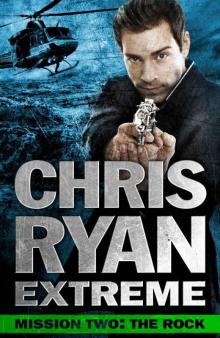 Chris Ryan Extreme: Hard Target: Mission Two: The Rock
Chris Ryan Extreme: Hard Target: Mission Two: The Rock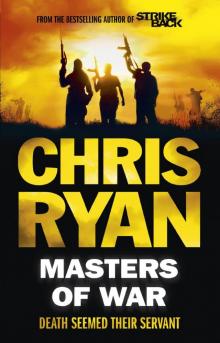 Masters of War
Masters of War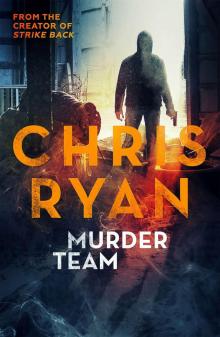 Murder Team
Murder Team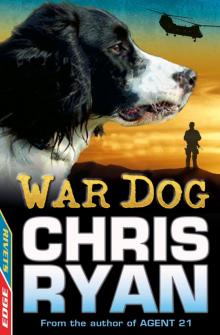 War Dog
War Dog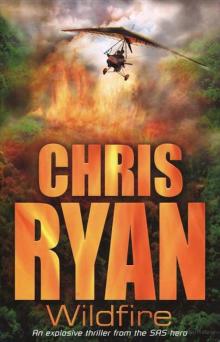 Wildfire cr-2
Wildfire cr-2 Survival
Survival The One That Got Away - Junior edition
The One That Got Away - Junior edition The Hit List
The Hit List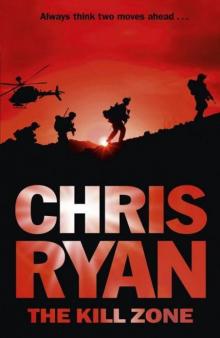 The Kill Zone
The Kill Zone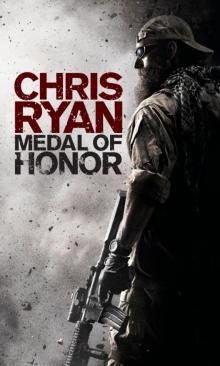 Medal of Honor
Medal of Honor Battleground
Battleground Twister
Twister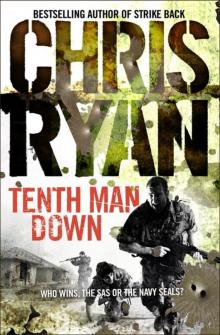 Tenth Man Down gs-4
Tenth Man Down gs-4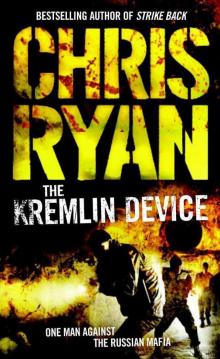 The Kremlin Device gs-3
The Kremlin Device gs-3 Hostage
Hostage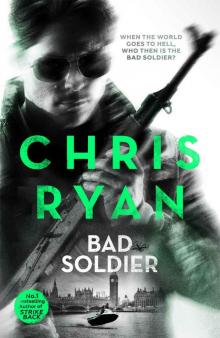 Bad Soldier: Danny Black Thriller 4
Bad Soldier: Danny Black Thriller 4 Alpha Force: Blood Money
Alpha Force: Blood Money Firefight
Firefight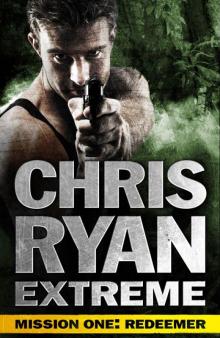 Chris Ryan Extreme: Hard Target: Mission One: Redeemer
Chris Ryan Extreme: Hard Target: Mission One: Redeemer Hit List
Hit List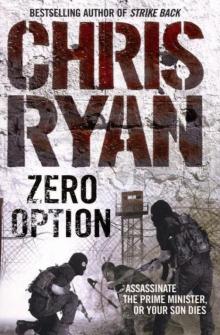 Zero Option gs-2
Zero Option gs-2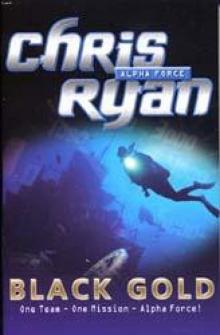 Black Gold
Black Gold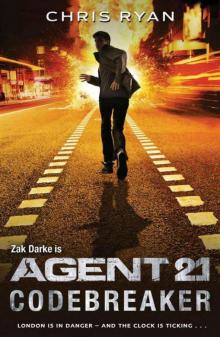 Agent 21: Codebreaker: Book 3
Agent 21: Codebreaker: Book 3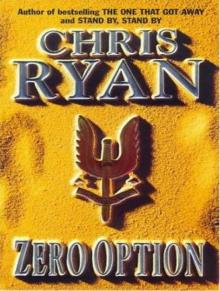 Zero Option
Zero Option Ultimate Weapon
Ultimate Weapon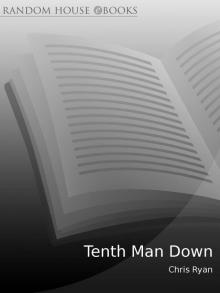 Tenth Man Down
Tenth Man Down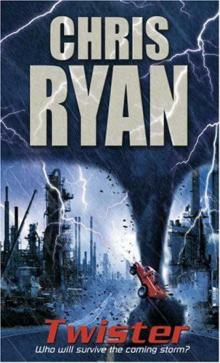 Twister cr-5
Twister cr-5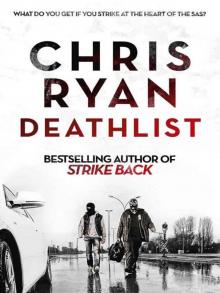 Deathlist
Deathlist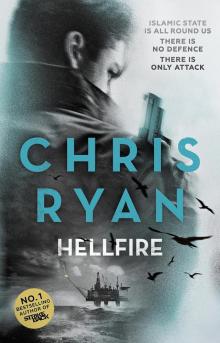 Hellfire
Hellfire Flash Flood
Flash Flood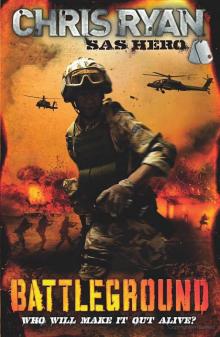 Battleground cr-6
Battleground cr-6 The Increment
The Increment